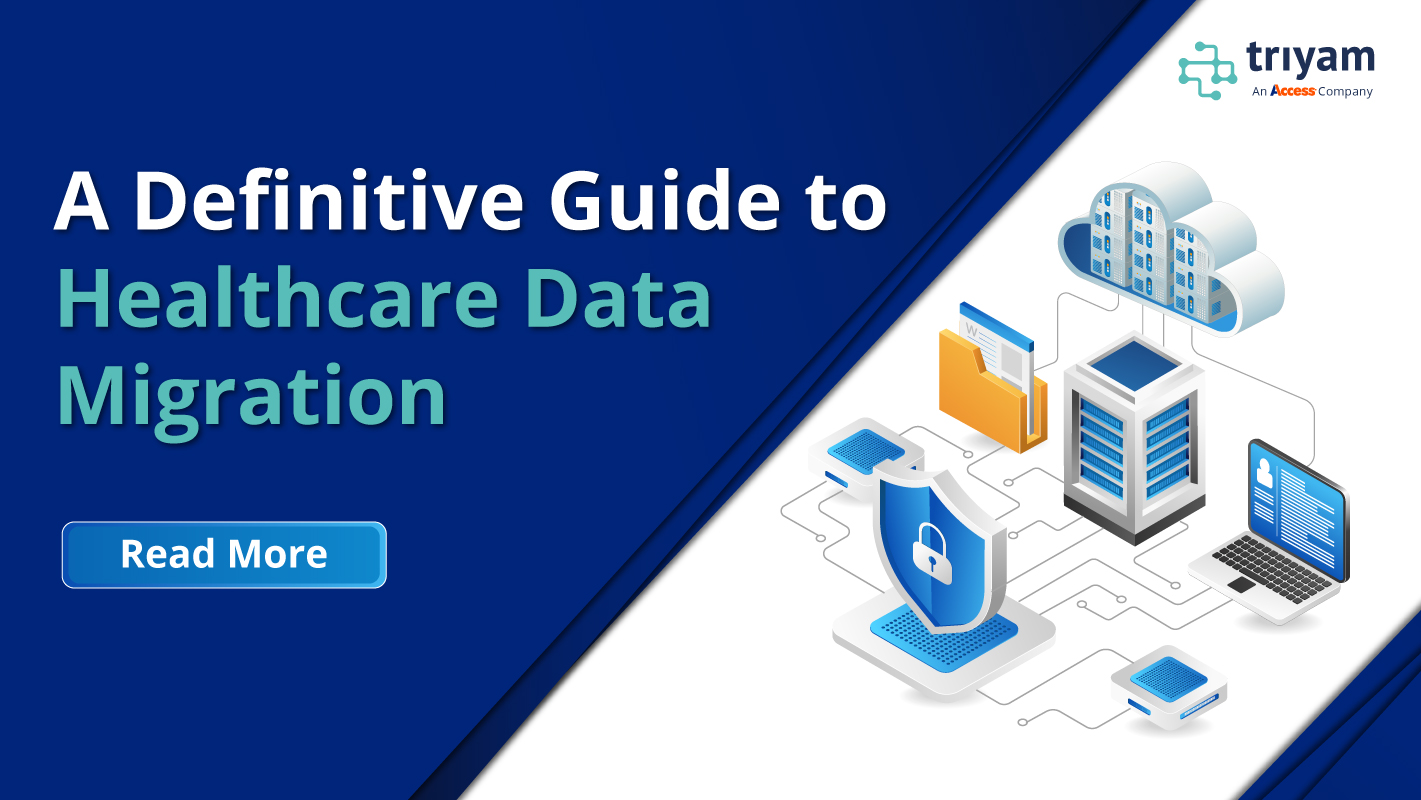What’s the buzz in the world of healthcare, one of the leading producers of critical data volumes? Clinical data migration. A Kaiser Permanente research found that healthcare organizations that successfully migrate data to integrated platforms report up to 20% higher operational efficiency, translating to improved patient care outcomes and reduced administrative costs.
By adopting cloud technology, 84% of businesses were able to reduce their computing costs. One of the key enablers of this transformation is effective healthcare data migration. With vast amounts of sensitive medical data covering patient, administrative and financial information, moving data across multiple platforms, applications, and systems can be complex. However, it is crucial. With the help of innovative health tech, optimal results can be achieved. That’s where Triyam, an Access company, comes in. With Fovea, Triyam’s HIPAA-compliant and SOC2-certified data management software, Triyam enables optimal patient data migration and medical data archiving that paves the path for informed decision making, data-backed treatment plans and comprehensive patient care, reducing costs and errors in critical evaluation.
What is Healthcare Data Migration?
Healthcare data migration is the process of data transfer from one healthcare system to another, often from legacy and outdated systems to modern archival systems like Triyam-licensed Fovea. It involves moving electronic health records (EHR), electronic medical records (EMR), billing information, patient demographics, clinical data, and other related documents between systems. Healthcare data migration can occur when:
- Moving from a legacy system to a new platform (e.g., transitioning to a cloud-based EHR system).
- Integrating new software or applications into an existing infrastructure.
- Merging data from multiple healthcare organizations, such as during a hospital merger or acquisition.
While data migration is the backbone for advanced and integrated healthcare operations, ensuring data integrity and security of patient data are of key significance in data migration services.
Why is Healthcare Data Migration Important?
- Improved Operational Efficiency:
Modern cloud systems enable streamlined workflows, automated compliance checks, reduced administrative burdens, accurate outcomes and enhanced decision-making based on real-time data. - Enhanced Patient Care:
Data migration allows for comprehensive and real-time access to a patient’s medical history, ensuring connected care and informed treatment plans. The centralized system adds data flexibility, interoperability and easy access to users with login credentials. - Compliance with Regulatory Requirements:
Data migration within cloud platforms ensures adherence to regulatory standards such as HIPAA compliance, which mandates stringent data protection and privacy measures. - Cost Reduction:
Migrating data to cloud-based platforms ensures reduced costs by reducing the need for expensive on-site infrastructure and enabling organizations to pay for only the resources they use. Additionally, data consolidation through migration can reduce redundant processes and administrative tasks.
Challenges of Healthcare Data Migration
Despite its importance, healthcare data migration is fraught with challenges. Some of the common issues include:
- Data Integrity:
Ensure migrated data remains consistent and accurate to avoid faulty care. - Data Security and Privacy:
Protect sensitive details through encryption and authorized access. - System Compatibility:
Data mapping and integration ensure seamless migration with various system formats. - Downtime:
Minimize downtime to avoid operational disruptions in patient care. - Training and Adoption:
Train staff for smooth adoption and full system utilization.
Best Practices for Successful Healthcare Data Migration
To mitigate the risks and challenges associated with healthcare data migration, here are some best practices to follow:
- Plan Thoroughly:
Develop a clear strategy with defined objectives, timeline, and budget. - Perform a Data Audit:
Ensure data is clean, accurate, and up-to-date before migration. - Choose the Right Migration Tools:
Select tools that automate the process and minimize errors. - Test and Validate:
Test migrated data in a staging environment for accuracy and functionality. - Ensure Data Security:
Use encryption and secure transfer to protect sensitive data during migration. - Train Healthcare Staff:
Ensure proper training for staff to effectively use the new system. - Ongoing Support and Monitoring:
Provide continuous support and monitor the system post-migration to address issues.
Healthcare data migration is a complex but essential process for healthcare organizations aiming to modernize their IT infrastructure, improve patient care, and comply with regulatory standards. Triyam’s demonstrated expertise in handling large volumes of health data within a centralized cloud platform with enhanced interoperability, flexibility, security and affordability stands at the forefront of transformative healthcare data migration leading to brilliant patient outcomes. Stay ahead with advanced data migration and drive improved care coordination, operational efficiency, and compliance with ever-tightening data security regulations.

